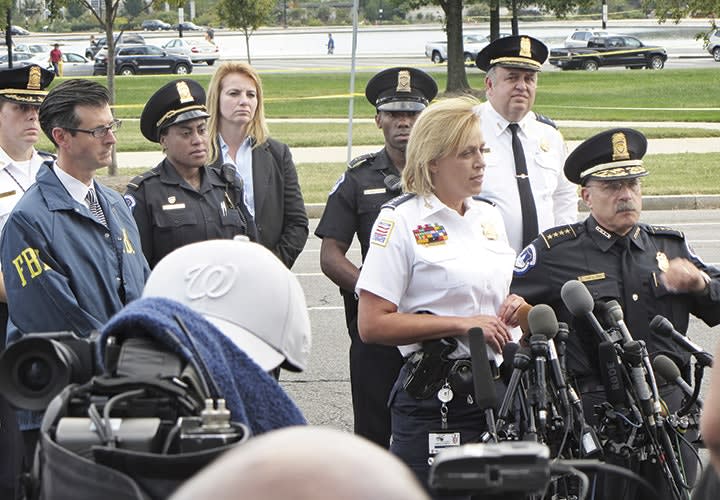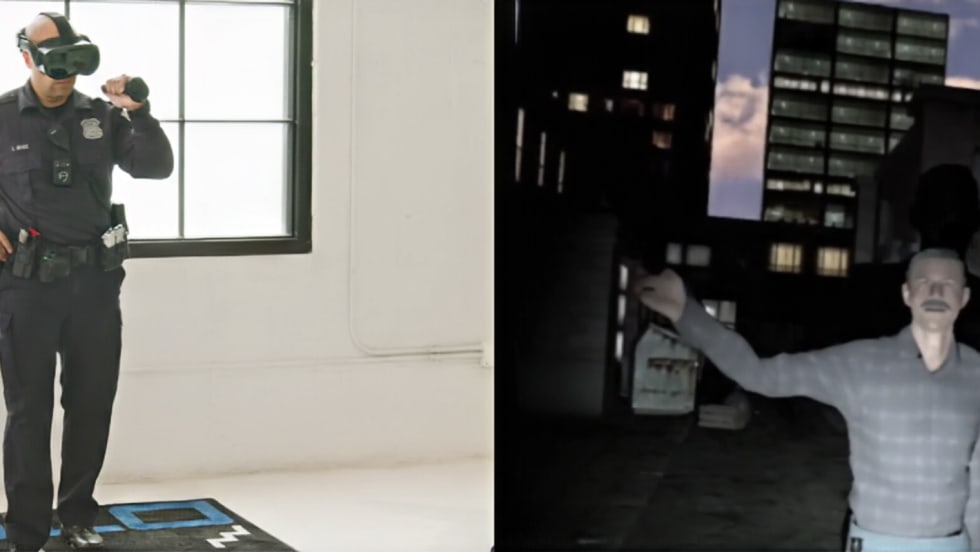I know one thing for sure: neither cops nor reporters understand each other. The role of the media is to be a check on government, including law enforcement. And law enforcement's role is the motto written on the side of LAPD's patrol cars: "to protect and to serve."
Over the last two years—and especially the last few weeks—law enforcement has been under tremendous stress. Not since the 1992 Los Angeles riots has police work been so closely scrutinized by people who know nothing of the job, including many media professionals who are too quick to jump to the wrong conclusions about the split-second actions on raw cellphone videos and the public who judge real-life police through what they've seen on fictional TV shows.
It seems even after the horrifying murders of law enforcement officers in Dallas and Baton Rouge, reporters can find no cops who do right, and cops can find no reporters they trust.
I have watched this with a unique perspective from both sides of the police line tape. I started my career as a radio reporter; then I became an LAPD cop for 17 years, and then an Emmy Award-winning reporter for Fox 11 News in Los Angeles, which led to work for Fox News Service covering the O.J. Simpson criminal trial. I began my television news career flying over the 1992 Los Angeles riots in a news chopper.
And now, I feel like I am reliving that time.
I know one thing for sure: neither cops nor reporters understand each other. The role of the media is to be a check on government, including law enforcement. And law enforcement's role is the motto written on the side of LAPD's patrol cars: “to protect and to serve.”
Harder Than It Looks
Police work is one of the hardest professions for citizens to understand. This is in no small part because Hollywood has done a great disservice to the American public by grossly misportraying the most critical moments of policing. Ask yourself where people get the idea that cops can shoot guns from suspects' hands. It isn’t the nightly news. On TV shows and in big screen movies, the bad guy always surrenders without a struggle. After all, the star can’t be hurt or killed.
I tell anyone who thinks it's easy to be a police officer to try this little experiment at home. I tell them to go home and play a little game with one of their small children. The rules of the game are that mommy or daddy is going to try to put the child's arms behind the child's back and the child is to try to prevent mommy or daddy from doing it. The people I talk to are startled to find out how hard it is to control the arms of their children.
After they've had that experience or thought about it, I tell them to imagine how hard it is for a police officer to control a drunk or drugged linebacker-sized angry man. Even this basic aspect of policing—controlling someone and putting him or her in cuffs—looks bad to the untrained, uninformed citizen.
The cold hard reality is that policing is often brutal and ugly and there are few pleasant ways to deny a citizen his or her freedom and put him or her under arrest.
90 Seconds
Reporting is also easily misunderstood. To cops, the process of taking statements and presenting information seems very simple. Every academy graduate can do it, right? Well, not so fast. A television reporter might get 90 seconds to do a story; a lot is left out. Viewers (including you) turn the channel if the pictures aren’t compelling. The devil is in the details, but the details also distract from compelling stories. Add to this two critical aspects: a reporter's bias (yes, everyone has bias) and total lack of understanding of police tactics.
Striking the right balance is an art, not a science, and keeping your personal biases out is a challenge. Sadly, few reporters take the time to learn how police do their jobs and draw conclusions not based on the totality of the incident.
Work With the Media
For a cop or other story subject to get into that balance and through the reporter's personal biases is a critical skill.
I know a lot about this. Part of my career at LAPD was spent in the Office of the Chief of Police, Media Relations Section—the Department’s public relations arm.
Historically, police departments take a “hands off” approach in dealing with the media. The department’s first priority is to solve crime and arrest suspects. Its secondary concern is to protect the taxpayers' pocketbooks if there is a likelihood of a lawsuit. Where there is any possible liability, city attorneys frown on any information being released.
Now, more than ever, police departments, police unions, and coppers have to have good public relations. You need to have experts ready to speak with reporters and counter the massive negative reporting with factual and compelling information.
The time has long passed when police departments and especially police unions could merely be reactive. Cops cannot wait until CNN has a satellite truck outside the police station or union office to start formulating communications plans. While every story is different and nuanced, the basic philosophy of what the organization values and how it does police work is consistent.
Not only do those ideas need to be identified and specified in a calm, focused manner, they have to be communicated to the local press before an incident. Building the elements of a good community relations story is much more difficult to do after the spotlight of scrutiny has been turned on.
Today, cops need to communicate in much greater depth with much more precision in order to reflect a much closer relationship with their communities. And the more this communication comes from individual officers or union officials, the much more effective the communication will be. Police chiefs are seen as politicians who do what elected officials tell them, so independent acts outside the official chain of command are far more convincing to a skeptical public and skeptical reporters.
The same is true for attorneys who defend police officers. The plaintiff’s bar is notorious for setting the stage for big payouts by controlling and spinning the media, as we have seen in Baltimore. Attorneys may be loath to try cases in the media, but allowing the jury pool to be pummeled and tainted with misinformation is a recipe for disaster and has resulted in millions of taxpayer dollars being paid to thugs and their lawyers
Law enforcement is changing rapidly. Things will never be the same. Social media has radically altered a department’s ability to control and react to messaging.
In response to this, executives in law enforcement agencies, unions, and other professional organizations must seek out competent, trained, and experienced media relations professionals who can tell their stories effectively. Understanding the media process and decision factors is just as critical to success as having facts that prove you did the right thing.
One doesn't need to look any further than at the ruins of former Ferguson Police Officer Darren Wilson’s career to understand that.
Rod Bernsen is a retired LAPD sergeant and law enforcement media expert. He is also an Emmy Award-winning broadcast journalist.











